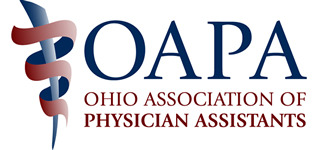Complete Story
10/01/2024
Why the PA Professional Title Matters
The Ohio Association of Physician Assistants is proud to be one of several AAPA constituent organizations actively working toward passing the PA title change in 2025. This initiative is a significant priority for the American Academy of Physician Associates and OAPA as we push for a title that more accurately reflects the responsibilities and contributions of the profession.
Are you struggling to understand the rationale behind the title change from "physician assistant" to "physician associate"? Are you wondering why this shift is so significant to our profession? The change isn't just about semantics. It's about accurately reflecting the vital role PAs play in healthcare today.
Here's why the title change matters.
The change from "physician assistant" to "physician associate" highlights the advanced care PAs provide across healthcare settings. After several years of research and consultation, the AAPA approved this change in May 2021. AAPA partnered with an outside firm to conduct an extensive study on public understanding of the profession, concluding that "assistant" no longer accurately represents the critical role PAs play in delivering healthcare, especially given their increased autonomy, diagnostic, and prescriptive responsibilities.
The term "associate" better captures the collaboration between PAs and physicians, emphasizing that PAs are integral to care teams and responsible for comprehensive patient management. This change mirrors title evolutions in other fields, such as law and academia, where roles previously labeled as "assistant" transitioned to "associate" to reflect growing responsibilities. For example, an associate attorney typically has greater autonomy and advanced responsibilities than a legal assistant, while an associate professor holds a more senior and independent role than an assistant professor.
Some concerns about the title change, such as fears it may confuse patients or lead people to think PAs are doctors, may surface. However, these concerns are largely unfounded.
Will this change confuse patients?
There is no evidence to suggest that patients will be confused by the term "physician associate." AAPA's research shows that the term more accurately reflects the role PAs already play in healthcare teams. The title "associate" emphasizes collaboration, central to the PA-physician relationship. It clarifies that PAs work closely with physicians, providing comprehensive care while maintaining transparency about their role.
Will people think PAs are doctors?
This concern overlooks the historical context of professional titles in healthcare and academia. PhD (Doctor of Philosophy) degrees were the first doctorates awarded in history, long before the modern-day medical doctor (MD) title existed. After MD degrees were introduced, the Doctor of Osteopathy (DO) title followed, adding another variation to healthcare titles without causing widespread confusion. The differentiation between PAs, MDs, and DOs is already well-established. The title "physician associate" highlights the collaborative role of PAs without implying they are physicians, just as MD and DO degrees coexist without misunderstanding.
Ultimately, the title change better reflects PAs' increasing responsibilities and expertise in modern healthcare. With proper patient education, any potential confusion will be minimized. The focus remains on delivering high-quality, patient-centered care.
AAPA's research shows that modern PAs are involved in nearly every medical specialty and provide high-level care across healthcare settings. By 2023, PAs participated in over 300 million patient visits annually, demonstrating their essential role. This title change reflects their clinical expertise and supports efforts to enhance public understanding and trust in the profession.
OAPA is working to ensure that "physician associate" becomes the recognized standard. Simply put, words matter.
As our healthcare system evolves, professional titles must keep pace to reflect PAs' vital contributions to healthcare accurately. We will keep OAPA members apprised as we make progress on title change here in Ohio. Find more information about PA title change on AAPA’s website at https://www.aapa.org/title-change/.

